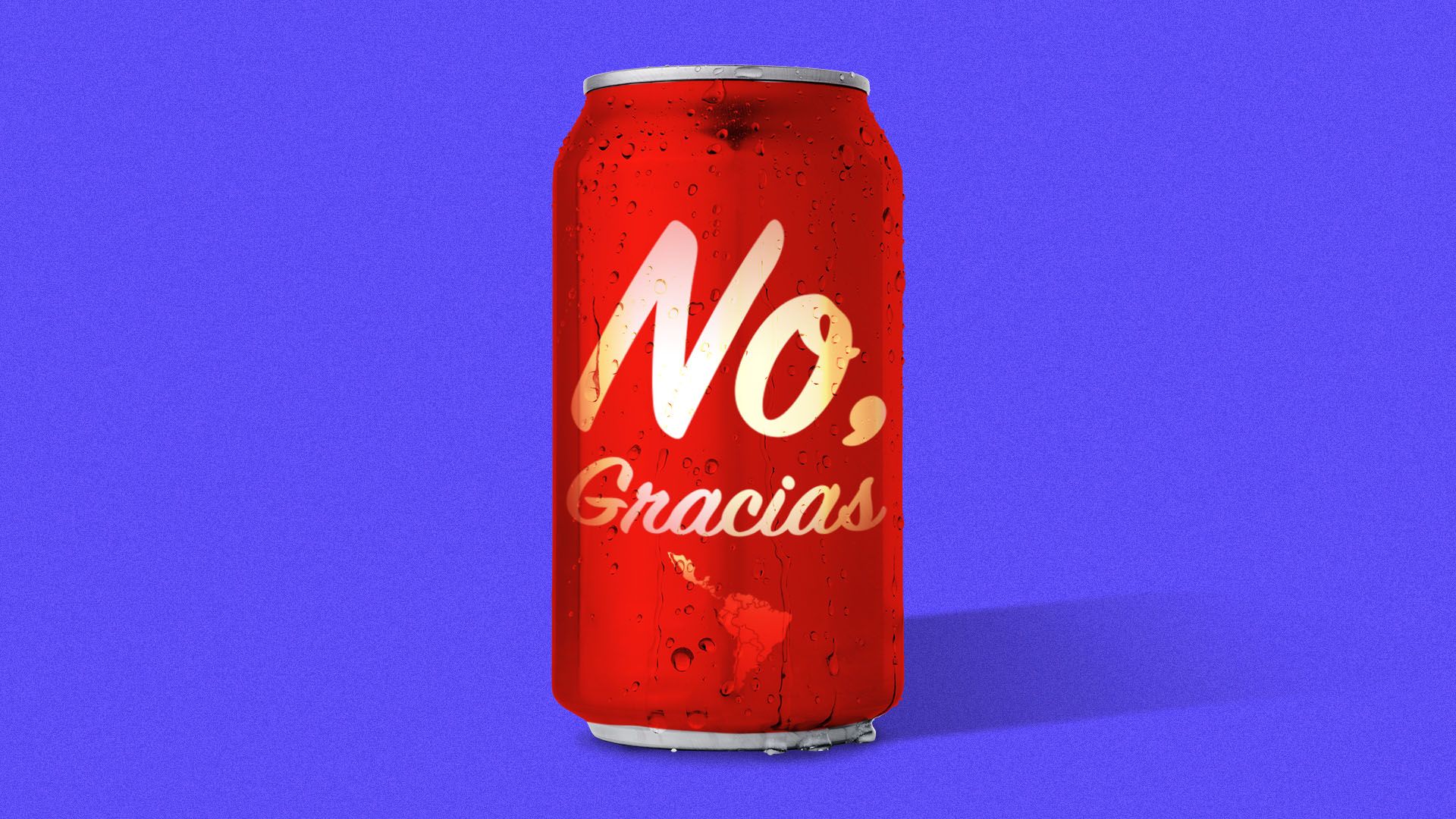How Latin America took on childhood obesity
Add Axios as your preferred source to
see more of our stories on Google.

Illustration: Sarah Grillo/Axios
The obesity epidemic grows by 3.6 million people annually in Latin America, prompting governments to take big steps to ensure that children grow up with healthy eating habits.
The big picture: "One country and one strategy at a time, the region has pushed back against sugary beverages and ultra-processed foods in an effort to escape the obesity epidemic that has overtaken the United States," the Washington Post writes.
Why it matters: If successful, the plans emerging in Mexico and Chile could serve as models for other countries struggling with obesity's public health toll, including the U.S.
- Childhood obesity can lead to high blood pressure, type 2 diabetes, asthma and a higher risk of cardiovascular diseases, in children as well as adults. It may also lead to higher risk for cancer in adults.
The Chilean government has passed restrictions on how and when companies can market unhealthy food to children.
- Brands are not allowed to use child-friendly marketing for foods high in sodium, sugar, calories or saturated fats, per the New York Times.
- Unhealthy foods must have "large black cigarette-style warning labels," writes the Financial Times (subscription).
- TV channels and movie theaters are not allowed to show ads for unhealthy foods between the hours of 6 a.m. and 10 p.m., according to the Post.
- Chile also increased its sugar tax from 13% to 18% in 2014 to target soda consumption, per the FT.
The results:
- Monthly consumption of sugary drinks fell by 21.6%, according to a study from the University of York and the University of Chile.
- Sales of sugary breakfast cereals dropped 9%, per the Washington Post.
In Mexico, heavy soda consumption helped increase the childhood obesity rate by 40% between 1999 and 2006, the Guardian reports.
- "In absence of clean municipal water, many communities over the years have turned to soda as their main source for hydration," the Wall Street Journal says.
- The Mexican government passed a 10% sugar tax in 2012 that affected all junk food and sugary beverages, per the Washington Post.
The results: Consumption of soda and junk food fell 12% nationally after the tax passed.
- The Mexican government hauls in $1.2 billion from the soda tax, and $967 million from junk food tax revenue annually, per the Washington Post.
Uruguay, Argentina and Peru have passed laws similar to Chile's that limit the marketing of unhealthy food to children.
In the U.S., the Trump administration cut health guidelines for school lunches while the CDC says childhood obesity is a "serious problem" in the U.S.
- "Obesity prevalence was 13.9% among 2- to 5-year-olds, 18.4% among 6- to 11-year-olds, and 20.6% among 12- to 19-year-olds," per the CDC.
- Cereal giant Kellogg's recently agreed to stop marketing some of its sugary breakfast offerings as "healthy," "wholesome" and "nutritious," as part of a settlement to a lawsuit.
